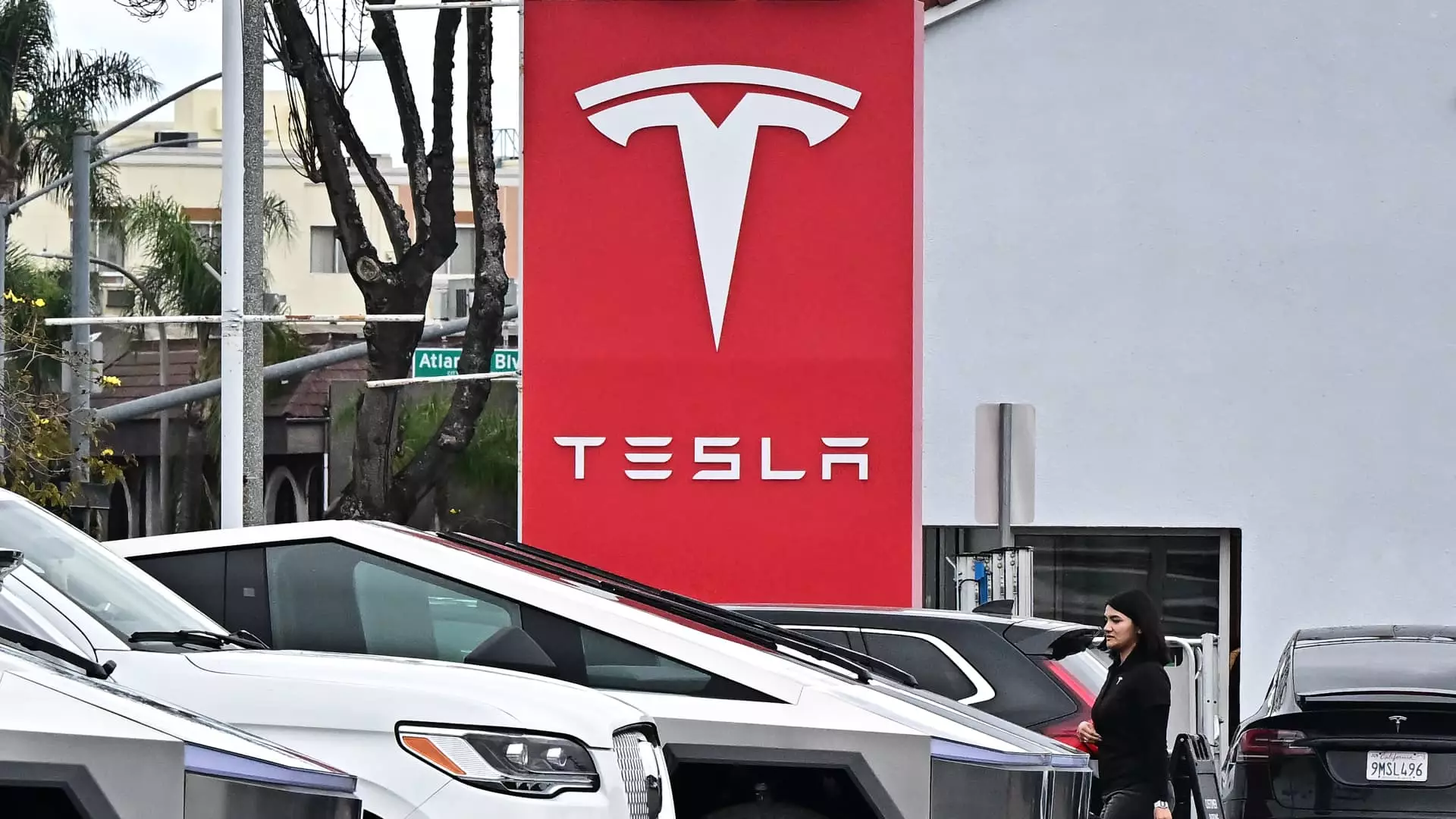Once hailed as the beacon of innovation and future mobility, Tesla is witnessing a drastic shift in sentiment from Wall Street analysts. Recent price target reductions from prestigious firms including Goldman Sachs, UBS, and Mizuho have left investors scrambling for clarity amidst rising trade tensions and faltering economic indicators. In a market that once seemed to appreciate any leap this electric vehicle pioneer made, the atmosphere has shifted to one of skepticism and recalibration.
Analysts are expressing an increasingly bearish outlook, a reflection of both present challenges and looming uncertainties. UBS has downgraded its price target from $225 to $190, indicating an alarming potential downside of nearly 30%. Goldman Sachs has followed suit with a cut from $275 to $260, suggesting a minor drop of 4% based on immediate market conditions. Mizuho did not completely follow the bearish trend but lowered its expectation from $430 to $375.
The fundamental analysis from UBS analyst Joseph Spak encapsulates the current reality; he argues that overall earnings expectations for Tesla might be “too high” and could face negative revisions after the first quarter of 2025. This is a stark predictive statement underscoring a significant loss of faith in the company’s ability to sustain its momentum in a swiftly changing auto industry.
Challenges on the Horizon
Multiple factors contribute to this pessimistic outlook. For one, the looming threat posed by tariffs—particularly those impacting Tesla’s energy sector—is becoming an increasingly significant concern. Investors are naturally wary of how trade disputes, particularly those with China, will affect operational cost structures and overall profitability. As tariffs raise operational costs, the burden will inevitably reflect on Tesla’s pricing strategy, potentially dampening consumer demand in a market that is already grappling with lower auto sales and slipping consumer sentiment.
At the same time, Tesla finds itself at a crossroads. While the company still boasts remarkable innovations and strong consumer loyalty, competition is intensifying, particularly in Europe and China. As global automakers ramp up their electric vehicle production capabilities, the throne of EV leadership that Tesla has long occupied is starting to feel precarious. For many, this changing landscape isn’t just an obstacle; it represents a fundamental shift in the auto industry that challenges Tesla’s previously unassailable position.
Musk’s Leadership Amidst Controversy
Elon Musk—Tesla’s enigmatic and often polarizing CEO—also factors into this equation. His involvement with the new Trump administration has drawn backlash, raising questions about how politics might affect investor sentiment. Musk’s unique brand of leadership often oscillates between visionary and chaotic, leading some to wonder if the company’s success could, in fact, be held hostage to his unpredictable decision-making.
The current stock performance serves as a testament to the wavering investor confidence in Musk’s stewardship. With Tesla shares down 33% year-to-date, it’s clear that the electrifying highs following the election have faded considerably. Investors who once viewed Musk as a trailblazer are now examining every tweet and public appearance with a critical eye, often weighing the risks against the rewards of remaining invested in his vision.
A Climate of Uncertainty
The consensus seems to suggest that the United States’ regulatory environment for electric vehicles may soon become more uncertain, a sentiment echoed by Goldman Sachs’ Mark Delaney. With factors ranging from diminished consumer confidence to fluctuating international trade relationships, it appears Tesla’s path to maintaining its leadership is fraught with obstacles.
However, not all analysts are on the same page. Mizuho’s Vijay Rakesh maintains a more optimistic stance, reiterating his outperform rating despite adjusting his price target. He sees potential in Tesla’s long-term market strategies, predicting that while competitors will challenge the company’s hold on the market, Tesla’s innovative capabilities remain formidable.
As uncertainty reigns, Tesla stands at a critical juncture. The battle for dominance in the electric vehicle market is intensifying, and while hope may still flicker within the company’s ambitious plans, the rising tide of skepticism among analysts indicates that serious introspection is required. The coming months will reveal whether Tesla can recalibrate its trajectory amid challenging economic conditions or whether it will continue to slide down a slippery slope toward irrelevance in an increasingly competitive landscape.


Leave a Reply